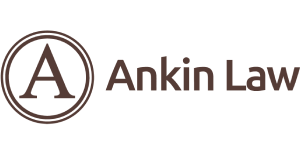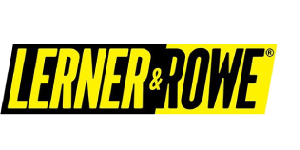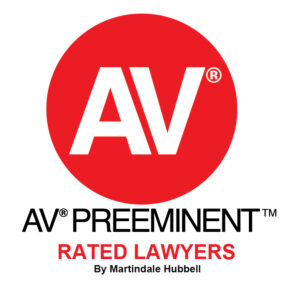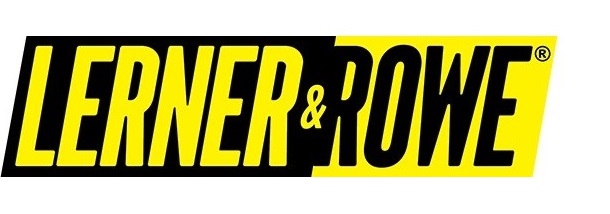Questions & Answers About Auto Accident & Injury Claims in Illinois
What types of automobile accident cases do law firms handle in Illinois?
Car Accidents in Chicago and Illinois: Injuries from auto wrecks on major highways like I-290, I-94, and I-55, and throughout Illinois, including collisions caused by distracted driving, speeding, or reckless behavior.
Truck Accidents in Chicago and Illinois: Cases involving semi-truck crashes, 18-wheeler wrecks, and tractor-trailer accidents on busy routes like I-80, I-57, and I-294, often resulting in severe injuries such as traumatic brain injuries or wrongful death.
Motorcycle Accidents: Injuries from motorcycle crashes caused by negligent drivers or hazardous road conditions, which can lead to spinal cord injuries, fractures, or other catastrophic injuries.
Bicycle Accidents: Cyclists struck by cars, trucks, or other motor vehicles, often suffering serious injuries due to the lack of protection. Riders across Illinois, including in Chicago and Naperville, face increased risks on busy streets with limited bike infrastructure.
Bus Accidents: Cases involving public transit, school buses, and private bus crashes due to driver error, mechanical failure, or unsafe road conditions.
Uber and Lyft Accidents: Injuries from rideshare crashes, whether as a passenger, driver, or pedestrian, with many cases involving serious personal injuries in congested areas like downtown Chicago.
Fatal Car Accidents: Wrongful death claims after fatal crashes caused by negligence, commonly seen on Illinois highways and throughout Cook, Will, and DuPage counties.
Pedestrian Accidents: When pedestrians are struck by vehicles, often leading to life-altering injuries or fatalities, particularly in high-traffic areas like downtown Chicago and near school zones in the suburbs.
Commercial Vehicle Collisions: Accidents involving Amazon delivery trucks, UPS vehicles, FedEx trucks, and other commercial vehicles, leading to severe injuries such as traumatic brain injuries or internal injuries.
Traumatic Brain Injuries and Spinal Cord Injuries: These life-altering injuries are common in high-impact car, truck, and motorcycle crashes throughout Illinois.
Wrongful Death Claims: When a loved one dies due to negligence in any type of vehicle accident, including fatal car wrecks, truck crashes, and motorcycle accidents in Chicago or elsewhere in Illinois.
What types of damages can a car and truck injury lawyer in
Medical expenses include compensation for current and future medical bills related to the injury, such as hospital stays, surgeries, medications, physical therapy, and ongoing treatments.
Lost wages cover income lost during recovery, as well as potential future earnings if the injury affects your ability to work.
Pain and suffering compensation accounts for physical pain and emotional distress, including anxiety, depression, loss of enjoyment of life, and insomnia.
Loss of consortium refers to damages for how the injury impacts relationships with a spouse or partner, including companionship and intimacy.
Property damage covers compensation for damaged or lost property, such as vehicles in a car accident in Chicago or elsewhere in Illinois.
Punitive damages may be awarded in Illinois in rare cases involving gross negligence or willful misconduct. While there is no general cap, these damages are only granted when extreme conduct is proven.
Rehabilitation costs include coverage for physical and occupational therapy, helping victims recover and adapt after a serious injury.
Loss of enjoyment of life applies when the injury prevents someone from participating in activities or hobbies they previously enjoyed.
Emotional distress compensation is available for psychological effects like PTSD, anxiety, or depression resulting from the injury.
Wrongful death damages may be sought if a fatal car accident in Illinois results in a loss of life, allowing surviving family members to recover compensation for funeral expenses, loss of financial support, and emotional suffering.
Permanent disability or disfigurement compensation is available for lasting physical impairments or visible changes in appearance that affect a person’s quality of life.
Since Illinois personal injury laws, including statutes of limitations and comparative fault rules, can impact the types of damages you may recover, consulting an experienced motor vehicle accident lawyer in Illinois can help ensure you seek the full compensation you deserve.
How long do I have to file a lawsuit after a motor vehicle injury in Chicago or elsewhere in Illinois?
Since missing the deadline can prevent you from recovering compensation, it’s important to consult with an experienced car accident lawyer in Illinois as soon as possible. A car or truck injury attorney in Chicago or surrounding areas can evaluate your case, determine how much time you have to file, and help protect your legal rights.
What is the average settlement for an auto accident or personal injury claim in IL?
However, here are some general guidelines for personal injury settlements in Chicago and throughout Illinois:
Minor Injuries: For soft tissue injuries such as minor whiplash, sprains, or bruising from a car accident, rideshare collision, or other motor vehicle crash, settlements typically range from $1,000 to $10,000. These amounts primarily cover medical expenses and short-term lost wages.
Moderate Injuries: Injuries requiring more extensive medical treatment, such as broken bones, herniated discs, or prolonged recovery periods from a truck accident or motorcycle crash, may result in settlements ranging from $10,000 to $50,000. These injuries can have lasting effects but typically do not involve permanent disability.
Severe Injuries: When a car or truck wreck leads to catastrophic injuries—such as traumatic brain injuries, spinal cord damage, or permanent disabilities—settlements can range from $50,000 to several million dollars, depending on the circumstances. Compensation often includes ongoing medical care, long-term loss of income, pain and suffering, and reduced quality of life.
Fatalities: In wrongful death cases from a fatal car accident in Illinois, settlements or jury awards can reach into the millions, depending on factors such as the deceased's age, earning potential, and the emotional and financial impact on surviving family members.
Punitive Damages: If a reckless driver, drunk driver, or negligent trucking company causes a crash through egregious behavior, Illinois courts may award punitive damages to punish the wrongdoer and deter similar conduct. These are awarded more selectively but can significantly increase total compensation.
Insurance Policy Limits: In many cases, the at-fault party’s insurance coverage acts as a cap on the total settlement—especially if they lack significant personal assets. This is why working with an experienced car accident attorney in Illinois is critical—they can help identify all available sources of compensation, including underinsured or uninsured motorist coverage.
Because every accident and injury case is unique, it’s essential to consult the best car accident lawyers in Illinois who can evaluate your specific situation, negotiate with insurers, and fight for the maximum compensation you deserve.
How long do most truck accident and other related personal injury cases take?
Complexity of the Case: More straightforward cases, such as rear-end car accidents with clear liability, tend to settle faster. However, cases involving disputed fault, multiple parties, or complex injuries—such as those seen in commercial truck collisions or rideshare accidents in Chicago—can take much longer.
Severity of the Injuries: When serious or long-term injuries like traumatic brain injuries, spinal cord damage, or permanent disabilities are involved, additional time is needed to fully assess medical needs and future costs before reaching a settlement.
Medical Treatment Duration: Many truck accident attorneys in Illinois recommend waiting until the injured party reaches maximum medical improvement (MMI) before settling. MMI is when a person’s condition stabilizes, ensuring that all future medical expenses and lost wages are properly accounted for in the claim.
Insurance Company Tactics: Some auto insurance companies may offer quick, lowball settlements, while others may delay, dispute, or even deny claims—especially in high-value cases like fatal car accidents or truck collisions. This can extend the process significantly.
Legal Processes: If a lawsuit is necessary, the pre-trial process, including discovery, motions, and court scheduling, can lengthen the timeline. In Chicago and other parts of Illinois, court backlogs can sometimes contribute to additional delays.
Willingness to Settle: Cases resolve faster when both sides are open to negotiation. However, if an insurance company or at-fault party refuses to offer fair compensation, a lawsuit may be required, adding more time.
Going to Trial: While most truck injury cases in Illinois settle before trial, those that go to court—especially involving severe injuries or wrongful death—can take several years, particularly if appeals are involved.
Jurisdiction & Court Delays: The location of the case can impact how quickly it moves through the legal system. Some courts in Chicago and throughout Illinois handle cases more efficiently, while others have significant backlogs.
Negotiation Delays: Disputes over fault, conflicting evidence, or the value of a claim can slow down the settlement process, especially in cases involving rideshare accidents, pedestrian injuries, or multi-vehicle collisions.
Since every case is different, working with an experienced auto injury lawyer in Illinois can provide a more accurate timeline based on the specifics of your claim. Consulting a Chicago car accident attorney early in the process can help you navigate delays and work toward securing the full compensation you deserve as efficiently as possible.
How does Illinois’s comparative negligence law affect Chicago car accident claims?
How much does it cost to hire an auto accident lawyer in
If your case is successfully resolved, the motor vehicle accident lawyer’s fee is deducted from your final compensation. However, if you don’t win your case, you generally don’t owe any attorney fees. Some lawyers may also cover case-related expenses, such as court filing fees, expert witnesses, and accident investigations, but these costs may be reimbursed from your settlement.
Since every firm has different fee structures, it’s best to discuss payment terms during your free consultation with an Illinois car accident attorney to understand exactly what to expect.
How do I know if I have a valid car or truck accident claim?
Medical records, accident reports, and witness testimony can help establish a clear connection between the accident and your injuries. The severity of your injuries and their impact on your daily life, ability to work, and long-term health also play a role in determining whether your case is strong.
If the insurance company disputes your claim or tries to minimize your settlement, seeking legal representation can help you understand your rights. A car or truck injury attorney in Illinois can assess the details of your case, determine if you have a valid claim, and help you pursue the compensation you deserve.
What makes commercial vehicle accidents more complicated than regular car crashes?
One major factor that makes these cases more difficult is liability, as more than one party may be responsible. In a big rig truck accident, 18-wheeler wreck, or semi-truck collision, liability could fall on the driver, trucking company, vehicle manufacturer, or a third-party maintenance provider. Similarly, in a garbage truck accident, delivery van accident, or tow truck accident, the company that owns or operates the vehicle may also be held accountable.
Another issue is insurance and compensation, as commercial vehicles are often covered by high-limit policies, meaning insurance companies will aggressively defend against claims. A commercial truck accident attorney can investigate the accident, gather evidence, and challenge insurance adjusters who attempt to minimize payouts.
Additionally, Amazon truck accidents, UPS truck accidents, and FedEx truck accidents involve corporate policies and strict delivery schedules, which can contribute to driver fatigue or reckless driving. Proving violations of federal trucking regulations can strengthen your case and increase the chances of securing a higher settlement.
Given the complexities of commercial vehicle accidents, working with an experienced commercial vehicle accident lawyer in Illinois can help protect your rights, ensure all responsible parties are held accountable, and maximize your compensation. If you or a loved one suffered serious injuries in a truck wreck or commercial vehicle crash, speaking with a lawyer for wrecks can provide guidance on the best legal options available.
Who is responsible for my injuries as a passenger in a rideshare accident involving Uber or Lyft?
In Chicago and throughout Illinois, Uber and Lyft provide third-party liability coverage, but it only applies under certain conditions. If the rideshare driver was actively transporting a passenger or en route to a pickup, Uber or Lyft’s $1 million liability policy may cover damages. However, if the driver was simply logged into the app without an active ride request, coverage may be significantly lower, and the driver's personal insurance may come into play.
If another driver caused the accident—such as in a T-bone collision, rear-end crash, or multi-vehicle wreck—their insurance company may be responsible. However, insurance companies often try to deny or minimize claims, making it critical to work with an Uber accident lawyer or Lyft accident attorney who understands the complexities of Illinois rideshare accident laws.
Additionally, if Uber or Lyft’s own negligence contributed to the accident, such as through improper driver screening or failure to enforce safety protocols, you may have grounds to file a claim against the rideshare company itself. This can be especially relevant in cases involving reckless driving, distracted driving, or intoxicated rideshare drivers.
Since rideshare accident cases involve multiple insurance policies, corporate legal teams, and strict filing deadlines, consulting an experienced rideshare injury law firm in Illinois can help protect your rights and maximize your compensation.
Elite reviews
Editorially researched Highlights pros & cons
-
Disparti Law
Read review -
Ankin Law
Read review -
Lerner & Rowe
Read review



















